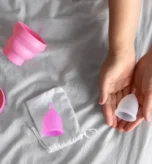Introduction: Why Early Swimming Lessons Matter
The thought of seeing your baby splash joyfully in the water is both exciting and nerve-wracking. As a parent, you want to give your child every opportunity for a strong, healthy start — but you also worry about infant water safety. That’s where swimming lessons for infants come in.

Modern research and pe diatric guidelines support early childhood swimming skills as a safe, effective way to nurture both body and brain. These classes are designed to be gentle, playful, and developmentally appropriate — not about competition, but connection and confidence.Whether you choose community swimming classes for infants, private instruction, or infant swim classes at the YMCA, these sessions can offer remarkable health benefits. In this article, we’ll explore seven essential benefits that make early swim lessons one of the best investments for your child’s future wellness.
1. Boosts Physical Development and Coordination

How Swimming Builds Strength
From their first playful kicks to floating independently, swimming challenges an infant’s muscles in new ways. Water supports the body while offering natural resistance, helping babies build stronger arms, legs, and core muscles.Studies show that swimming lessons for infants enhance overall body coordination earlier than non-swimming peers. Babies learn to balance, stretch, and move their limbs in harmony — key skills for crawling and walking later.
Why Early Movement Matters
Developing motor coordination early has lifelong benefits. These movements stimulate the vestibular system, which supports balance and posture. As infants float, paddle, and splash, they naturally develop better hand-eye coordination and muscle control.
Practical Tip
Encourage gentle kicking and water play even outside of formal lessons. This helps babies feel confident and comfortable around water — the foundation of future swim lesson progression stages.
2. Strengthens the Heart and Lungs Through Gentle Exercise

A Natural Aerobic Workout
Swimming is a full-body exercise, even for infants. Moving against water resistance promotes cardiovascular health and improves lung capacity. Babies who swim regularly tend to have stronger heart and respiratory systems as they grow.
Benefits of Aquatic Exercise
Because water reduces impact, it’s a safe form of movement. The benefits of aquatic exercise extend to improved blood circulation and oxygen efficiency — supporting overall growth and development.
Practical Tip
Look for swimming classes for infants that include breath-control games. Early infant breath control techniques teach babies how to respond safely to water and strengthen their lungs naturally.
3. Improves Cognitive Growth and Motor Skills

Brain Development Through Water Play
Research from Griffith University found that babies who attended swimming lessons for infants showed better language, memory, and motor skill development. The multi-sensory experience — water movement, touch, and sound — stimulates key brain regions.
Early Learning Benefits
Every time your baby splashes, kicks, or reaches for a toy, their brain forms new neural pathways. This fosters early childhood swimming skills that extend beyond the pool — enhancing problem-solving, focus, and emotional regulation.
Practical Tip
Integrate songs, colors, and toys during water time to promote mastering swim class routines and sensory development.
4. Encourages Confidence and Early Water Safety

Building Trust and Security
For many parents, the biggest motivation for starting early is infant water safety. Lessons teach comfort in the water, floating, and safe reactions if a baby accidentally slips underwater. These are life-saving baby swim survival skills.
Reducing Fear, Building Confidence
Starting swimming young helps eliminate fear later. Babies who are introduced to water early are more relaxed and adaptable during beginning swimming lessons for adults, too — showing how early exposure affects long-term confidence.
Practical Tip
Choose instructors trained in child drowning prevention tips and certified infant aquatics. Look for programs that emphasize gentle immersion and positive reinforcement rather than forced submersion.
5. Enhances Emotional Bonding and Social Skills

Parent-Baby Connection
Shared experiences in water strengthen emotional bonds. Physical touch, eye contact, and laughter in the pool release oxytocin — the “bonding hormone.”
Social Benefits
Group swimming classes for infants foster early socialization. Babies learn to observe, imitate, and respond to others’ actions — essential skills for emotional growth.
Practical Tip
If possible, join a YMCA infant swim class or local community program. The structured environment promotes teamwork, patience, and cooperative play — valuable foundations for preschool readiness.
6. Builds Healthy Sleep Patterns and Appetite

How Swimming Affects Sleep
Swimming is an energy-intensive activity, even for babies. After swimming private lessons, many parents notice their infants sleep longer and more deeply. The rhythmic movement in water helps calm the nervous system and supports restorative sleep.
Improved Appetite
Physical exertion increases metabolism and hunger cues. Babies often eat better and gain healthy weight when swimming classes for infants are part of their routine.
Practical Tip
Avoid lessons right after feeding; wait at least 30 minutes. Consistent scheduling also helps regulate your baby’s mastering swim class routines and rest cycles.
7. Creates a Foundation for Lifelong Fitness

Early Exercise Habits
Introducing water play early builds a lifelong appreciation for movement. Children who enjoy swimming as infants are more likely to engage in adult beginner swim training and fitness activities later in life.
Skill Progression
Consistent lessons create strong swim lesson progression stages, preparing children for future sports and active lifestyles.
| Age Group | Recommended Lesson Duration | Focus Area |
| 6–12 months | 15–20 minutes | Comfort and play-based movement |
| 1–2 years | 20–30 minutes | Floating, kicking, and basic breath control |
| 2–4 years | 30 minutes | Basic strokes, balance, and water safety |
Practical Tip
Consider swimming private lessons for personalized pacing and attention. For adults wondering, “Can swimming private lessons accelerate skill development?” — yes, individualized coaching often speeds up progress and builds confidence faster.
FAQ: Common Questions About Infant Swimming Lessons
Important safety and timing concerns are frequently brought up when learning about infant swimming lessons. Here are some concise, knowledgeable responses to boost your confidence.

1. When is the ideal age for infants to begin swimming lessons?
Experts advise beginning when your baby can hold their head up steadily, which should be between six and twelve months. Prior exposure prioritizes ease and enjoyment over formal technique.
2. How do swimming lessons for infants benefit their health?
They enhance muscle strength, coordination, heart health, and brain development — while promoting emotional bonding and infant water safety.
3. When is it safe to start newborn swimming lessons?
Newborns under 6 months should only engage in gentle water play at home, not formal classes. Always consult your pediatrician before starting lessons.
4. What should I look for in swimming private lessons?
Choose certified instructors with infant experience, small class sizes, and a focus on swim lesson pool safety and positive reinforcement.
5. Why choose YMCA swimming lessons for adults or infants?
The infant swim classes YMCA offers are structured, affordable, and emphasize community safety and skill progression — ideal for both families and adult beginners.
6. Can adults benefit from beginning swimming lessons?
Absolutely. Beginning swimming lessons for adults improve cardiovascular health, flexibility, and confidence in water at any age.
Conclusion: A Healthy Start That Lasts a Lifetime
Enrolling your baby in swimming lessons for infants isn’t just about learning to swim — it’s about nurturing overall health, development, and confidence. From stronger hearts and lungs to better sleep and bonding, the benefits reach far beyond the pool.

Whether you choose swimming private lessons, a group program, or the infant swim classes YMCA offers, consistency is key. Start early, stay patient, and make each splash a step toward lifelong well-being.If you’re ready to give your child the gift of health, consider exploring your local swimming classes for infants — and take the plunge into a happier, healthier future together.
Internal Links
- Skin Care Routine for Oily Skin: 9 Effective Tips
- Sleep Hygiene Checklist: 8 Complete Ways to Increase Rest
- Success Starts Here: 2025 Healthy Morning Routine



